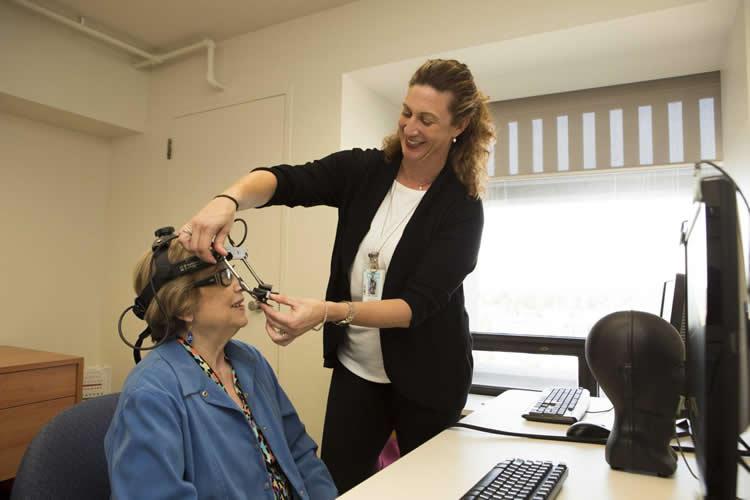Learn about brain health and nootropics to boost brain function
Link Between What We See and How We Remember ‘Breaks’ As We Age

Summary: A new study reports older adults exhibit greater eye movements, but this does not correlate with an increase in brain activity patterns. Researchers say, while the eyes and brain are taking in environmental information, the link to creating memories of what is seen weakens over a life time.
Source: Baycrest Center for Geriatric Care.
Forgetfulness and age-related memory lapses are a common complaint for many older adults, but what is still not understood is what causes these changes..
Recent research published by scientists at Baycrest’s Rotman Research Institute (RRI) brings us a step closer to uncovering the answer, which could help with distinguishing signs of dementia earlier.
The study, published in the journal Neuropsychologia, found that among older adults, there is a much weaker relationship between what their eyes see and their brain activity.
“Eye movements are important for gathering information from the world and the memory centre of the brain – the hippocampus – is important for binding this data together to form a memory of what our eyes see,” says Dr. Jennifer Ryan, RRI senior scientist and Reva James Leeds Chair in Neuroscience and Research Leadership. “But we found that older adults are not building up the memory in the same way as younger adults. Something is falling apart somewhere along the path of taking in visual information through the eyes and storing what is seen into a memory.”
Previously, Baycrest researchers had identified a connection between what we see and how we remember – when the eyes view and process more details of an object in front of them, there is more brain activity in the memory centre of the brain. When the object is seen multiple times, there is a progressive drop in hippocampus activity, indicating that what is seen is no longer new information. But this doesn’t happen with older adults.
In the latest study, researchers found that older adults exhibited greater eye movements, but there isn’t a corresponding pattern in brain activity.
“These findings demonstrate that the eyes and brain are taking in information from their surroundings, but the linkage aspect of creating a memory appears to be broken,” adds Dr. Ryan, who is also a psychology professor at the University of Toronto. “When the memory isn’t being created, the object continues to remain unfamiliar to a person, even when they have seen it multiple times.”
The study was conducted with 21 older adults (between the ages of 64 and 79) and 20 younger adults (between the ages of 19 and 28). Research participants were briefly shown faces on a screen where some of the images were displayed multiple times. Researchers analyzed the eye movements and brain scans of individuals as they looked at and analyzed the pictures.

As next steps, researchers will continue exploring the triggers of eye movements and related activity in the brain, which could be used to help predict earlier cognitive decline in Alzheimer’s disease or other related dementias.
This study was conducted with support from the Canadian Institutes of Health Research, Natural Sciences and Engineering Research Council and the Canada Research Chairs Program.
With additional funding, scientists could continue research that would inform the development of an eye-tracking cognitive assessment that could one day help doctors evaluate cognitive decline in clients.
Funding: Canadian Institutes of Health Research, Natural Sciences and Engineering Research Council, Canada Research Chairs Program funded this study.
Source: Michelle Petch Gotuzzo – Baycrest Center for Geriatric Care
Publisher: Organized by NeuroscienceNews.com.
Image Source: NeuroscienceNews.com image is credited to Baycrest.
Original Research: Abstract for “Age-related changes in the relationship between visual exploration and hippocampal activity” by Zhong-Xu Liu, Kelly Shen, Rosanna K. Olsen, Jennifer D. Ryan in Neuropsychologia. Published July 31 2018.
doi:10.1016/j.neuropsychologia.2018.07.032
Abstract
Age-related changes in the relationship between visual exploration and hippocampal activity
Deciphering the mechanisms underlying age-related memory declines remains an important goal in cognitive neuroscience. Recently, we observed that visual sampling behavior predicted activity within the hippocampus, a region critical for memory. In younger adults, increases in the number of gaze fixations were associated with increases in hippocampal activity (Liu et al., 2017). This finding suggests a close coupling between the oculomotor and memory system. However, the extent to which this coupling is altered with aging has not been investigated. In this study, we gave older adults the same face processing task used in Liu et al. (2017) and compared their visual exploration behavior and neural activation in the hippocampus and the fusiform face area (FFA) to those of younger adults. Compared to younger adults, older adults showed an increase in visual exploration as indexed by the number of gaze fixations. However, the relationship between visual exploration and neural responses in the hippocampus and FFA was weaker than that of younger adults. Older adults also showed weaker responses to novel faces and a smaller repetition suppression effect in the hippocampus and FFA compared to younger adults. All together, this study provides novel evidence that the capacity to bind visually sampled information, in real-time, into coherent representations along the ventral visual stream and the medial temporal lobe declines with aging.
Click here to view full article